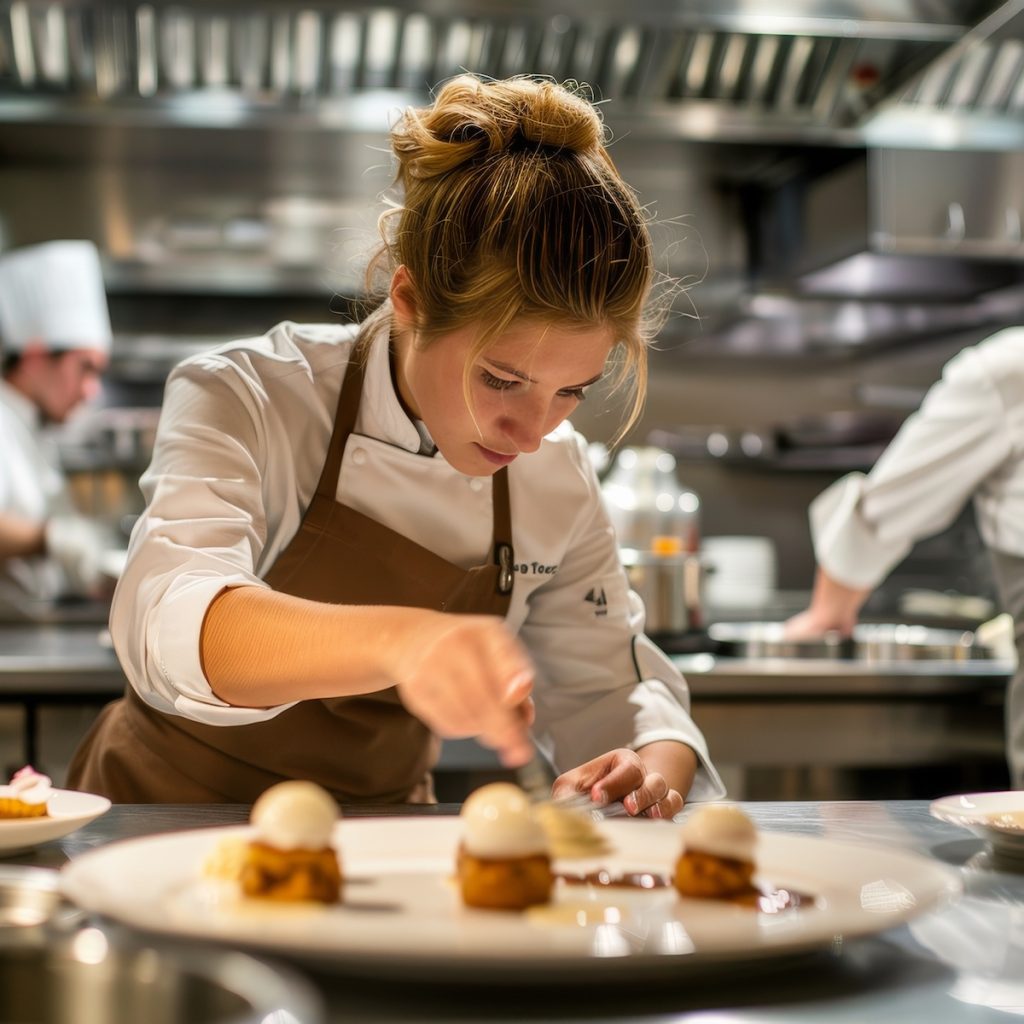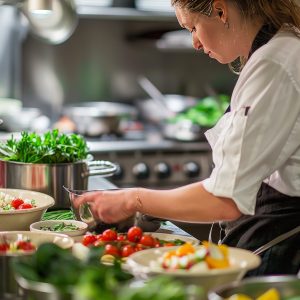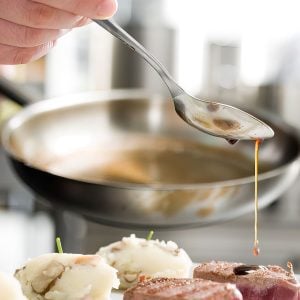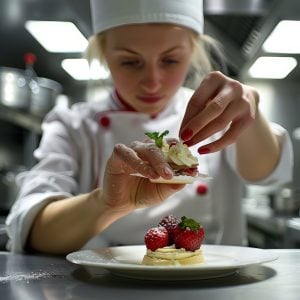So You Want To Become A Pastry Chef
A pastry chef is a skilled culinary professional creating desserts, pastries, and baked goods. Their role extends beyond simply baking; it encompasses creativity, precision, and a deep understanding of ingredients and techniques. Here’s a detailed description of what a pastry chef typically does:
1. Recipe Development: Pastry chefs excel in developing recipes for various desserts and pastries. This involves experimenting with flavors, textures, and presentations to create unique and appealing treats.
2. Baking and Cooking: A significant part of their day involves hands-on baking and cooking. They use various techniques, such as mixing, kneading, tempering chocolate, and piping creams, to ensure that each pastry meets high culinary standards.
3. Menu Planning: Pastry chefs often collaborate with other chefs and restaurant managers to plan dessert menus that complement the overall dining experience. When designing these menus, they consider seasonal ingredients, customer preferences, and dietary restrictions.
4. Quality Control: Ensuring consistency and quality is paramount in pastry making. Chefs meticulously monitor baking times, ingredient proportions, and presentation to deliver desserts that are not only delicious but also visually appealing.
5. Creativity: Creativity is at the heart of a pastry chef’s work. They innovate new flavors, techniques, and designs to keep their offerings fresh and exciting. This might involve adapting traditional recipes or experimenting with new ingredients.
6. Knowledge of Ingredients: Pastry chefs have a deep understanding of ingredients, including their properties, flavors, and how they interact during baking. This knowledge allows them to troubleshoot problems and create balanced and flavorful desserts.
7. Team Leadership: Pastry chefs often lead teams of assistant chefs and bakers in larger kitchens. They delegate tasks, oversee production, and ensure each team member performs at their best.
8. Presentation: Presentation is critical in the world of pastry. Chefs pay attention to detail and use artistic techniques to decorate cakes, pastries, and desserts, making them visually appealing and enticing to customers.
9. Adaptability: Pastry chefs must adapt to changing demands, such as catering to special events, adjusting recipes for dietary restrictions, or accommodating last-minute orders.
10. Continuous Learning: To stay current in their field, pastry chefs often attend workshops, study new trends, and experiment with new techniques. This dedication to learning helps them evolve professionally and maintain their creativity.
A pastry chef’s role combines culinary expertise, creativity, and meticulous attention to detail to create delightful and memorable desserts that enhance the dining experience.
Qualities of a Pastry Chef
A successful pastry chef requires culinary skills, personal qualities, and professional attributes. Here are some essential qualities that a pastry chef should possess:
- Creativity: They need a creative flair to innovate new desserts, flavors, and designs. This creativity allows them to stand out in a competitive culinary industry and continuously delight customers with unique offerings.
- Attention to Detail: Precision is crucial in pastry making. They must meticulously follow recipes, measure ingredients accurately, and pay close attention to baking times and temperatures to ensure consistent and high-quality results.
- Patience: Baking and pastry work often requires patience, especially when dealing with delicate techniques like tempering chocolate or proofing dough. Patience helps pastry chefs achieve the perfect texture and flavor in their creations.
- Time Management: The kitchen environment can be fast-paced, especially during busy service times. Pastry chefs must manage their time effectively to meet deadlines, prepare desserts on schedule, and coordinate with other kitchen staff.
- Teamwork: Collaboration is key in a kitchen setting. They often work as part of a larger culinary team, coordinating with chefs, sous chefs, and assistants to ensure smooth operations and timely delivery of desserts.
- Stamina and Endurance: The work of a pastry chef can be physically demanding, involving long hours on their feet and repetitive tasks like mixing, kneading, and decorating. Stamina and endurance are essential to handle the demands of a busy kitchen.
- Adaptability: Menus, ingredients, and customer preferences can change frequently. Pastry chefs must be adaptable, willing to learn new techniques, and adjust recipes to accommodate dietary restrictions or special requests.
- Culinary Knowledge: Pastry chefs need a strong foundation in culinary techniques and a thorough understanding of ingredients. This knowledge allows them to troubleshoot problems, experiment with new recipes, and maintain high standards.
- Cleanliness and Hygiene: Maintaining a clean and organized workspace is crucial in a kitchen environment. Pastry chefs adhere to strict hygiene standards to ensure food safety and prevent contamination.
- Passion for Pastry: A genuine passion for pastry and dessert-making drives successful pastry chefs. This passion fuels their creativity, motivates them to improve their skills continuously, and inspires them to create memorable dining experiences for their customers.
By embodying these qualities, pastry chefs can excel in their careers, create outstanding desserts, and contribute to the success of their culinary establishments.
How to Become a Pastry Chef
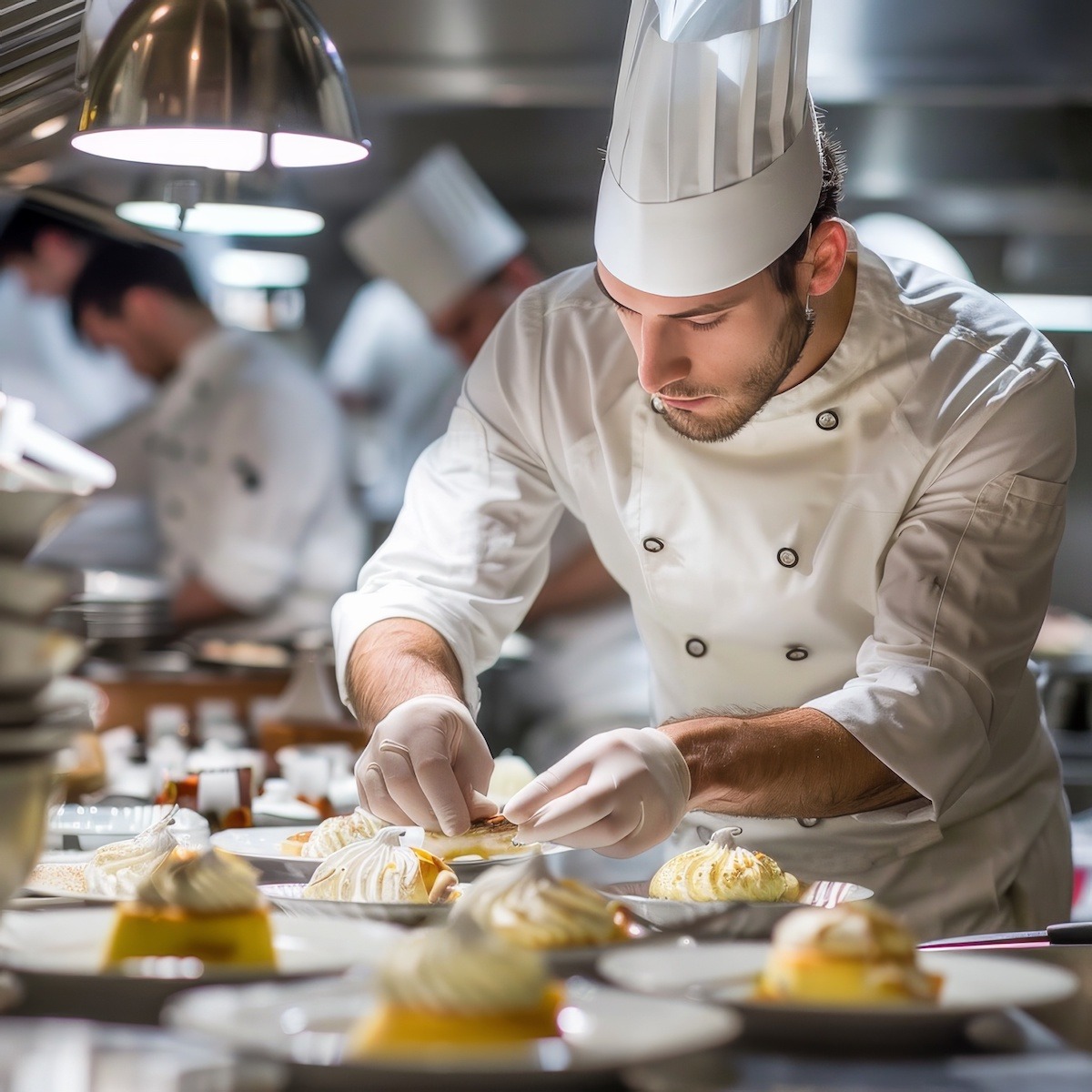
Becoming a pastry chef typically involves a combination of formal education, hands-on experience, and personal dedication to mastering the craft of pastry making. Here’s a step-by-step guide on how to become a pastry chef:
- Education and Training:
- Culinary School: Consider enrolling in a reputable culinary school or institute that offers pastry arts or baking programs. These programs provide foundational knowledge in pastry techniques, baking principles, food safety, and kitchen management.
- Apprenticeships or Internships: Many aspiring pastry chefs gain valuable experience through apprenticeships or internships in professional kitchens. This hands-on training allows you to learn from experienced chefs, practice techniques, and understand the daily operations of a pastry kitchen.
- Build Culinary Skills:
- Develop essential culinary skills such as baking, pastry dough preparation, cake decorating, chocolate tempering, and sugar work.
- Master techniques for creating a variety of desserts, pastries, and baked goods, focusing on traditional and contemporary methods.
- Gain Experience:
- Gain practical experience by working in entry-level positions in pastry kitchens, bakeries, restaurants, or hotels. Starting as a pastry assistant or commis chef allows you to learn from seasoned professionals and refine your skills.
- Progress to more challenging roles involving recipe development, menu planning, and pastry production management.
- Develop Creativity and Innovation:
- Experiment with different flavors, ingredients, and techniques to develop your unique style as a pastry chef.
- Stay updated on current pastry trends and innovations by attending workshops, seminars, or culinary events.
- Obtain Certifications (Optional):
- Consider obtaining certifications from culinary organizations or associations, such as the American Culinary Federation (ACF) or the Retail Bakers of America (RBA). These certifications can demonstrate your expertise and commitment to professional standards in pastry arts.
- Network and Build Reputation:
- Network within the culinary industry to connect with other chefs, suppliers, and potential employers.
- Showcase your skills and creativity through social media platforms, food blogs, or participating in culinary competitions to build a reputation as a talented pastry chef.
- Continued Learning and Professional Development:
- Through continuous learning and professional development, you can stay updated on industry trends, new techniques, and innovations in pastry arts.
- Seek opportunities for mentorship or advanced training to enhance your skills and expand your knowledge base.
By following these steps and dedicating yourself to continuous improvement, you can embark on a rewarding career path as a pastry chef. You can create delicious and visually stunning desserts that delight customers and showcase your culinary talent.
Career Options
Pastry chefs can work in various settings within the culinary industry, ranging from traditional kitchens to specialized establishments. Here are some common places where pastry chefs may find employment:
- Restaurants: Pastry chefs are often employed in restaurants of all types, from casual eateries to fine dining establishments. They may be responsible for creating dessert menus, preparing pastries, and ensuring consistent quality.
- Hotels: Many hotels employ them to oversee the production of desserts, pastries, and baked goods for their restaurants, room service, banquets, and special events.
- Bakeries: Pastry chefs can work in artisanal bakeries, patisseries, or specialty bakeries that create a variety of breads, cakes, pastries, and other baked goods for retail sale.
- Cafés and Coffee Shops: They may work in cafés and coffee shops where they prepare a selection of pastries, cakes, cookies, and other treats to accompany coffee and tea offerings.
- Catering Companies: Catering companies often employ pastry chefs to create desserts and pastries for events such as weddings, corporate functions, parties, and other special occasions.
- Pastry Shops and Dessert Bars: Some choose to work in standalone pastry shops or dessert bars, where they specialize in creating and selling a variety of sweets and treats to customers.
- Food Trucks and Pop-Up Events: Pastry chefs may also work in mobile food trucks or pop-up events, where they prepare and serve desserts and pastries at festivals, markets, and other outdoor venues.
- Cruise Ships: Larger cruise ships employ them to manage onboard pastry kitchens and provide a wide range of desserts and baked goods for passengers and crew.
- Educational Institutions: Pastry chefs may work as instructors in culinary schools, colleges, or vocational training centers, teaching aspiring chefs the art and techniques of pastry making.
- Private Clubs and Resorts: Exclusive clubs, resorts, and private dining establishments often employ pastry chefs to create customized desserts and pastries for their members and guests.
- Corporate and Institutional Dining: Some corporations, hospitals, and institutional dining facilities employ pastry chefs to oversee their dessert and pastry offerings for employees, patients, and visitors.
- Research and Development: Pastry chefs may work in research and development roles in larger food manufacturing companies or culinary research facilities, creating and testing new products and recipes.
These are just a few examples of the diverse career opportunities available to pastry chefs, each offering unique challenges and opportunities to showcase their culinary skills and creativity.
Is A Culinary Career Right For Me?

